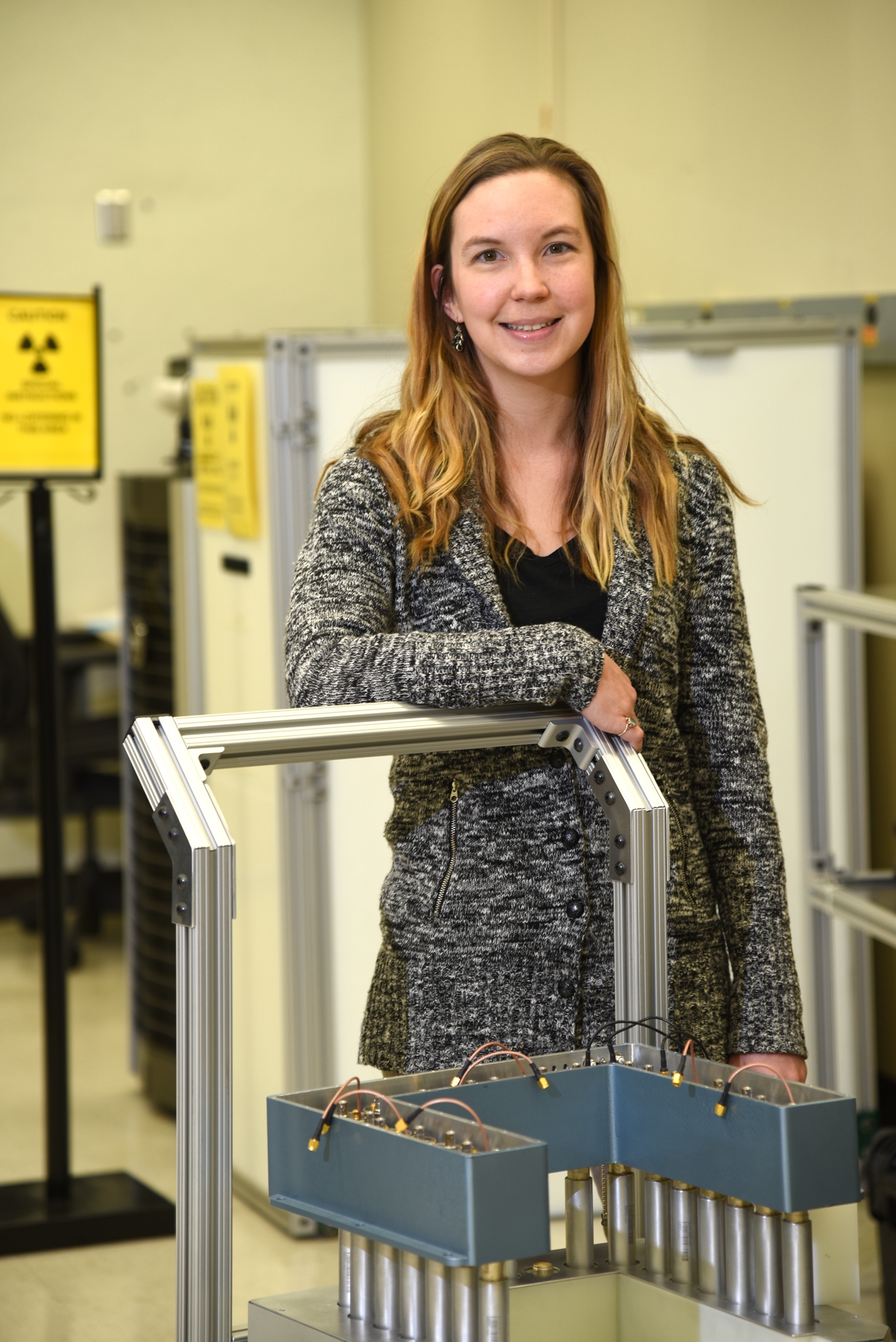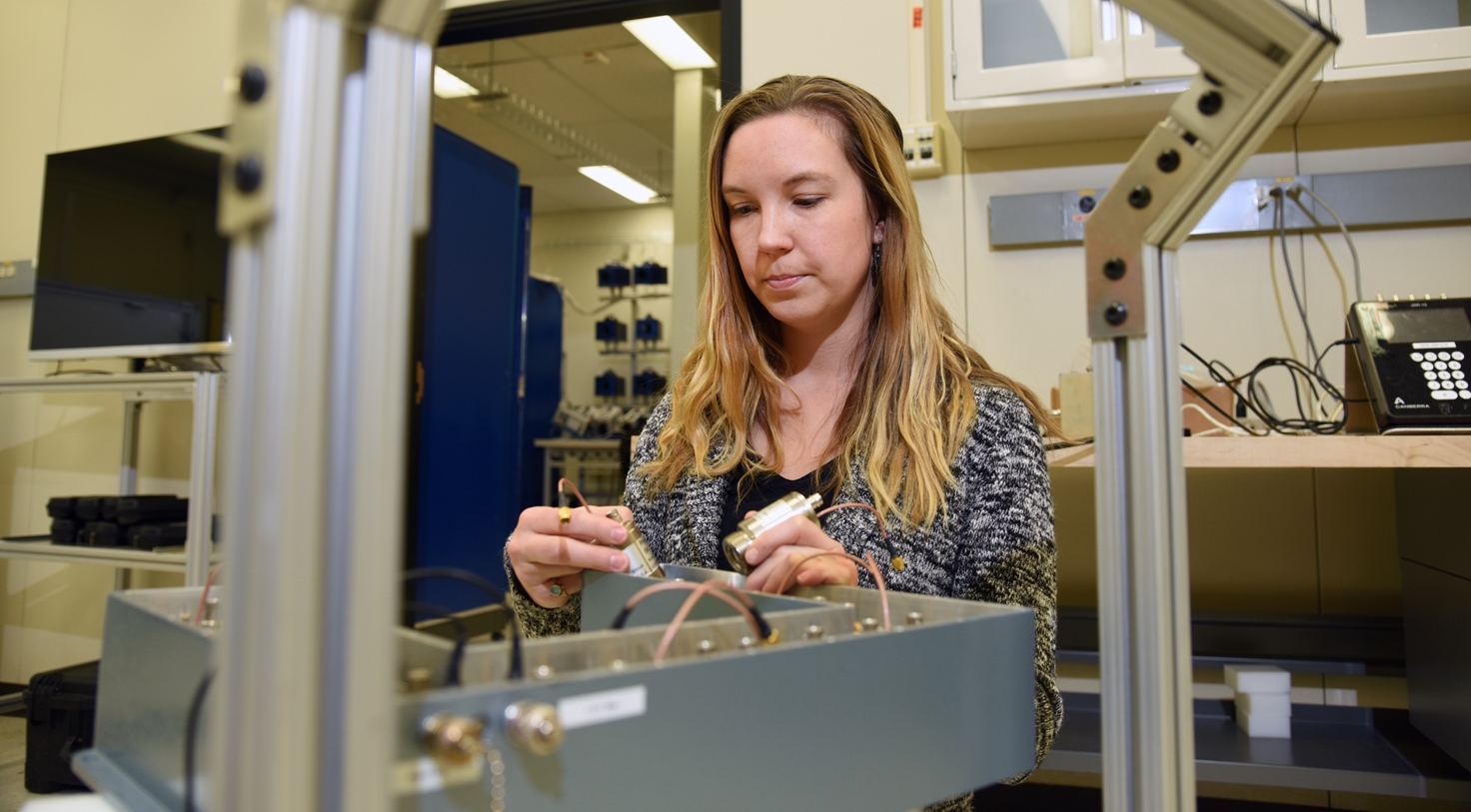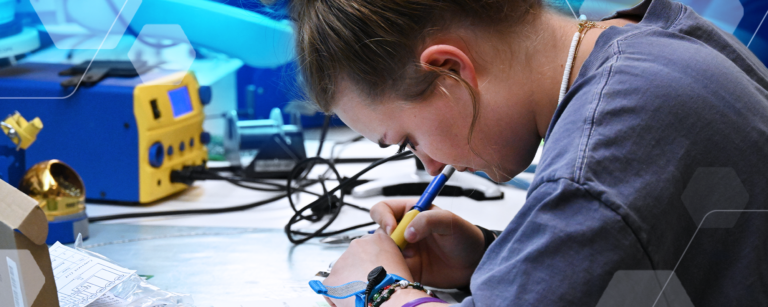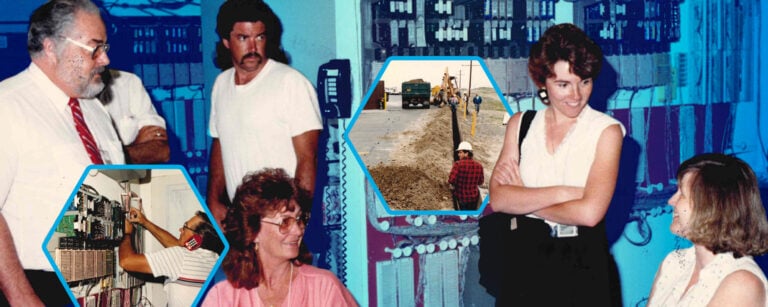There probably aren’t many people at Idaho National Laboratory who come straight from the U.S. Peace Corps, but Janine Lambert, a research engineer and scientist in the National & Homeland Security Directorate, sees the work she has done with both as part of a unified picture.
“I like to think we’re making the world safer,” she says.
Before she came to INL, Lambert spent three years in Namibia, in southwestern Africa, teaching math and science in a remote village. The experience made a profound impression on her and gave her insights most Americans – engineers and others – might not have.
“I still can’t waste water,” she said, recounting how much of her days in southwest Africa were spent fetching it.
Today, Lambert is part of INL’s National and Homeland Security Research Program, specializing in nuclear nonproliferation work and providing technical expertise for the U.S. Department of Energy and the International Atomic Energy Agency (IAEA). She earned her bachelor’s degree in nuclear engineering from the University of Michigan and her master’s in environmental engineering from the University of South Florida.
While an undergraduate, Lambert had a summer internship at DOE’s Brookhaven National Laboratory, where she was mentored by Jay Disser, a nuclear engineer with an MBA from the Wharton School of the University of Pennsylvania. Disser was at INL when the two reconnected, and he brought her on as an intern in January 2016, with a full-time position following that November. She had barely finished training when he had her write a nuclear nonproliferation brief for him to present in Washington, D.C.
The work was exemplary, said Disser, now in Vienna, Austria, as a safeguards analyst for the IAEA (though still employed by INL). “(Janine) has a really high work ethic,” he said. “She can be relied upon to take on ambiguous projects and do well with them.”

Lambert’s work with INL is in international safeguards, working on projects that support the IAEA’s mission to verify that countries are using their nuclear materials and facilities for peaceful purposes. The main goal is to prevent the diversion of nuclear materials, when materials are taken from their regular and prescribed uses.
Nonproliferation is an interesting way for a person to apply a dynamic skill set, Disser said. “On one side, you have engineers and scientists and on the other you have policy people with backgrounds in foreign relations and political science. Whichever background you’re coming from, you have to have a good working knowledge of the other side.”
It may be a low-profile job, but the stakes are in the headlines every day, he said.
Lambert’s experience with the Peace Corps “says something about who she is and her desire to be involved in something bigger than herself.”
While in Namibia, she spent just over two years at the Kapana Combined School in Caprivi, teaching math to grades six and eight, physical science to grade eight, and basic information science to grades five through 10. She also initiated and helped with debate club, two HIV/AIDS clubs, science fair club, and the school library. With the Peace Corps itself, she was in the Gender Awareness in Namibia Committee, which sponsored equality-focused events, including GLOW (Guys and Girls Leading our World), and a camp for learners about diversity, equality, leadership and careers.
Her last year in the country, she lived in Windhoek, the capital, working for Star for Life, a motivational program for learners in Namibian schools that focuses on education as a means to achieve dreams while staying away from unhelpful behaviors like drugs and alcohol. She worked mainly with monitoring and evaluating, fundraising and marketing.
She also managed to research her thesis and dissertation, “A Life Cycle Assessment of a Uranium Mine in Namibia,” which focused on mining and milling processes at a mine in Namibia.
During her time in Africa, Lambert kept a blog, janinebecomesnamibian.wordpress.com, documenting her experiences through February 2016, when she visited Egypt on her way back to the U.S. She definitely sees travel as part of her future. “I like meeting professionals from other countries,” she said.






